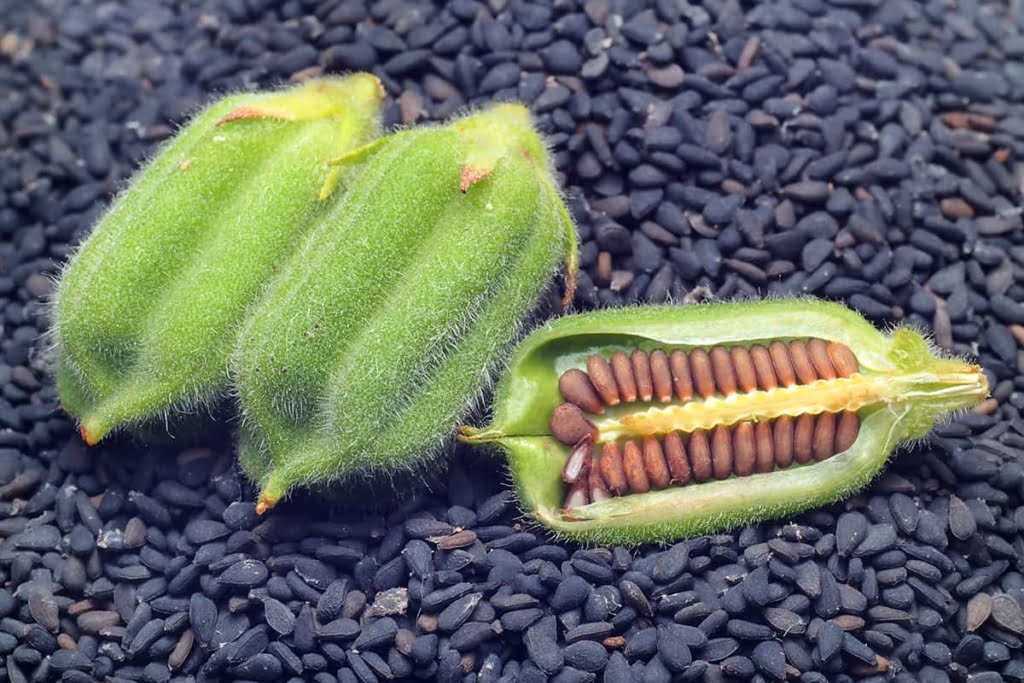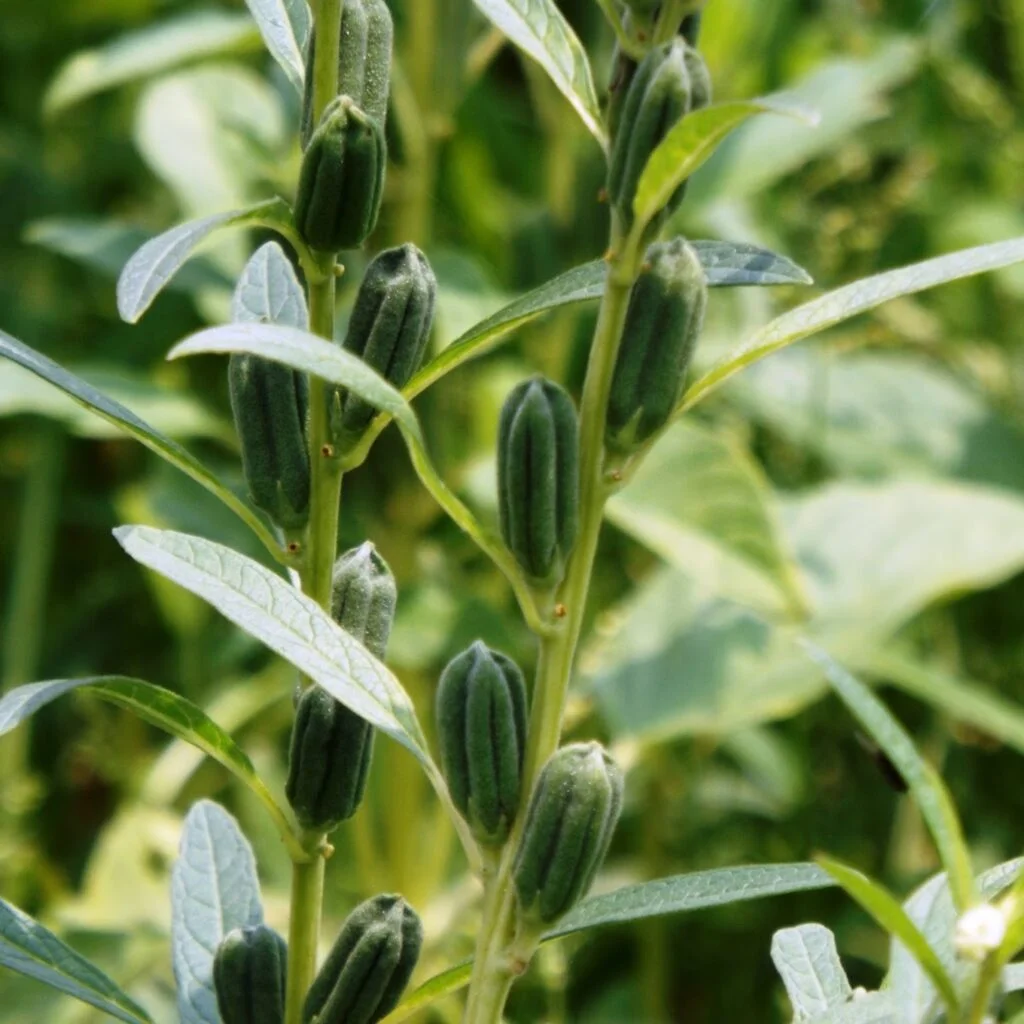Nigeria, a land of diverse agricultural opportunities, holds a promising sector for sesame seeds farming. With its conducive climate, fertile soils, and increasing demand for sesame products both domestically and internationally, Nigeria stands as a prime location for sesame cultivation. In this blog post, we’ll delve into the intricacies of sesame seeds farming in Nigeria, exploring its significance, cultivation techniques, challenges, and opportunities in this thriving agricultural sector.
Understanding Sesame Seeds:
Sesame seeds, scientifically known as Sesamum indicum, are one of the oldest oilseed crops cultivated by mankind. These tiny seeds are packed with essential nutrients, including healthy fats, proteins, vitamins, and minerals, making them highly valued in the culinary and medicinal fields. Sesame seeds come in various colors, ranging from white, brown, to black, and are widely used in cooking, baking, oil extraction, and traditional medicine.
Significance of Sesame Farming in Nigeria:
Nigeria’s agricultural landscape offers an ideal environment for sesame cultivation, particularly in states like Kano, Jigawa, Katsina, Benue, and Nassarawa. The significance of sesame farming in Nigeria stems from various factors:
- Economic Contribution: Sesame farming serves as a vital source of income for rural farmers, contributing significantly to Nigeria’s agricultural GDP. The export potential of sesame seeds adds to its economic significance, earning foreign exchange for the country.
- Nutritional Value: Sesame seeds are rich in nutrients like protein, calcium, iron, and antioxidants, providing essential dietary components for consumers. Incorporating sesame products into the diet can help combat malnutrition and enhance overall health.
- Employment Opportunities: Sesame cultivation creates employment opportunities along the value chain, from farm laborers to traders and processors. This helps alleviate poverty and promotes rural development in Nigeria.
Cultivation Techniques:
Successful sesame cultivation in Nigeria requires careful planning, appropriate agronomic practices, and adherence to specific cultivation techniques:
- Land Preparation: Select well-drained, fertile soils with good moisture retention capacity for sesame cultivation. Prepare the land by plowing, harrowing, and leveling to create a fine seedbed.
- Seed Selection and Sowing: Choose high-quality sesame seeds suitable for local agro-climatic conditions. Sow seeds directly into the prepared soil at the onset of the rainy season or through irrigation in dryland areas. Optimal spacing between rows and plants is crucial for proper growth and yield.
- Irrigation and Water Management: Provide adequate moisture during the germination and early growth stages of sesame plants. Implement efficient irrigation methods such as drip or sprinkler irrigation to ensure uniform water distribution and minimize water wastage.
- Weed Control: Keep the field weed-free through manual weeding or herbicidal applications. Timely weed management prevents competition for nutrients, water, and sunlight, thereby promoting better sesame growth and yield.
- Fertilization: Conduct soil tests to determine nutrient deficiencies and apply appropriate fertilizers accordingly. Balanced fertilization with nitrogen, phosphorus, and potassium promotes healthy plant growth and enhances yield potential.
- Pest and Disease Management: Monitor sesame crops regularly for pest and disease infestations. Employ integrated pest management (IPM) strategies, including cultural, biological, and chemical control measures, to minimize crop damage and yield losses.
- Harvesting and Post-Harvest Handling: Harvest sesame crops when the lower leaves turn yellow, and the capsules begin to crack open. Use sickles or mechanical harvesters to cut the plants close to the ground. Thresh the harvested sesame plants to separate the seeds from the capsules and dry them under the sun to reduce moisture content. Proper post-harvest handling and storage practices help maintain seed quality and prevent spoilage.

Challenges in Sesame Farming:
Despite its potential, sesame farming in Nigeria faces several challenges that hinder its growth and productivity:
- Inadequate Infrastructure: Poor rural infrastructure, including roads, storage facilities, and market access, hampers the efficient transportation and marketing of sesame products.
- Limited Access to Inputs: Smallholder farmers often lack access to high-quality seeds, fertilizers, pesticides, and irrigation technologies, limiting their ability to optimize sesame production.
- Climate Variability: Unpredictable weather patterns, including irregular rainfall, droughts, and floods, pose significant risks to sesame cultivation and crop yields.
- Pests and Diseases: Sesame crops are susceptible to various pests and diseases, such as aphids, leaf spot, and Fusarium wilt, which can cause substantial yield losses if not adequately managed.
- Price Volatility: Fluctuations in global sesame prices and market demand impact the profitability of sesame farming, making it challenging for farmers to plan and invest effectively.
Opportunities for Growth:
Despite the challenges, sesame farming in Nigeria presents promising opportunities for growth and development:
- Value Addition: Encourage investment in value-added processing industries for sesame products like sesame oil, tahini, and halva, to create additional revenue streams and enhance the competitiveness of Nigerian sesame in domestic and international markets.
- Research and Innovation: Promote research and development initiatives aimed at breeding high-yielding sesame varieties adapted to local growing conditions, as well as sustainable agronomic practices and pest management strategies to improve productivity and resilience.
- Market Diversification: Explore new export markets and niche segments for sesame products, such as organic and fair-trade certifications, to capture premium prices and expand market opportunities beyond traditional destinations.
- Farmer Empowerment: Strengthen farmer cooperatives, provide training, extension services, and access to credit facilities to empower smallholder sesame farmers with the knowledge and resources needed to enhance productivity, income, and livelihoods.
Conclusion:
Sesame seeds farming holds immense potential for Nigeria’s agricultural sector, offering opportunities for economic growth, nutritional security, and rural development. By addressing the challenges and leveraging the available opportunities, stakeholders can foster a sustainable sesame value chain that benefits farmers, processors, traders, and consumers alike. With concerted efforts towards research, innovation, and market development, Nigeria can emerge as a leading player in the global sesame industry while promoting inclusive and resilient agricultural growth across the country.
Ajigofarms is a reliable global agricultural purchase sourcing with profound expertise in the manufacturing, and exportation of food crops. We are tested, and trusted suppliers of all kinds of cash crops and food crops. Our constant supply chain solution makes exporting easy, quick, and safe, we are identified with timeliness and meeting up with deadlines. Regardless of the region you are located in worldwide, you can reliably order your Agric products and be rest assured of successful delivery.




